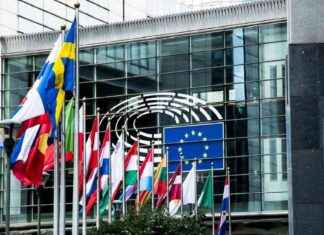Hundreds of thousands of homes in Quebec are still without electricity on Friday, two days after the passage of an ice storm in eastern Canada, which killed three people and caused extensive material damage, particularly in Montreal.
The storm caused the worst power outage in Quebec in 25 years, and about 400,000 homes remained in the dark Friday at 5:30 p.m. (2130 GMT), compared to 1.1 million at the height of the weather.
The public electricity supplier “Hydro-Québec has resolved about 50% of the situations. We have the objective that this evening, about 80% of the residences be reconnected and by tomorrow evening, 95%”, declared Premier of Quebec François Legault, during a press briefing.
“Patience and be careful,” he added, calling on people to help each other.
François Legault also announced the death of a man at his home located about fifty kilometers northwest of Montreal. The man died after being poisoned with carbon monoxide while using an electric generator in his garage, police later said.
This death, the third since the start of the storm, is added to that of a resident of eastern Ontario killed by a falling tree on Wednesday and that of a 60-year-old in Quebec fatally injured by a branch while trying to clear his garden on Thursday.
The Montreal health authorities have also recorded about sixty reports of carbon monoxide poisoning, families using, for example, barbecues inside their homes to warm up.
As the day progressed, the power was gradually restored. “We know that for some customers it will last until Sunday, potentially Monday,” according to Régis Tellier, spokesperson for Hydro-Québec.
The city of Montreal, where about half of the outages occurred, opened six emergency shelters. Residents without electricity were able to spend the night there.
In one of them, located in the Verdun district (southwest of Montreal), about thirty people came to warm up, drink coffee, eat or charge their electronic devices on the first day of the long weekend of Easter.
“It was mostly boring, I had planned to work and it delayed me a bit, but it’s not the end of the world”, tells AFP Isabelle, a 28-year-old teacher who did not wish to give her last name.
Accompanied by her mother and her two boys aged 8 and 3, Rosalie Gouba is saddened to have had to throw away the food reserves for the next few months because of the shutdown of her refrigerator, and to see the breakdown continue.
“The first night was very difficult, because I’m afraid to sleep in complete darkness. Since I’m stressed, the children are too,” says the 30-year-old mother, who came with books to occupy them. .
Hundreds of employees of the Quebec metropolis were still deployed on the ground on Friday, especially in parks where many branches were strewn on the ground after collapsing under the weight of the ice.
Under a temperature of around 1°C, the ice had melted, but gusts of wind were shaking the trees, with the risk of further falling branches. The authorities always advised the population not to approach the electric wires.
The municipal parks, in particular that of Mont-Royal, the hill which dominates the city, remained closed.
The bad weather affected Quebec and Ontario, the two most populous provinces in Canada.
The French-speaking province had been plunged into chaos for several weeks in 1998 by a vast ice storm.
08/04/2023 00:11:56 – Montréal (AFP) – © 2023 AFP






